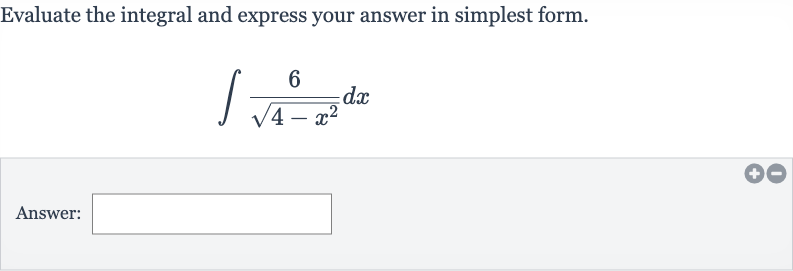Full solution
Q. Evaluate the integral and express your answer in simplest form.Answer:
- Recognize standard form: Recognize the integral as a standard form. The integral resembles the integral of the form , which is a standard inverse trigonometric integral.
- Trigonometric substitution: Use a trigonometric substitution. Let , which implies . The limits of integration will change accordingly if this were a definite integral, but since it's an indefinite integral, we will substitute back to at the end.
- Substitute with : Substitute with in the integral.The integral becomes .
- Simplify the integral: Simplify the integral.The integral simplifies to \int\frac{\(6\)}{\sqrt{\(4\)\(-4\)\sin^\(2\)(\theta)}} \cdot \(2\cos(\theta)d\theta = \int\frac{}{\sqrt{(-\sin^(\theta))}} \cdot \cos(\theta)d\theta\.
- Use Pythagorean identity: Use the Pythagorean identity . The integral further simplifies to .
- Cancel terms: Cancel out the terms.The integral simplifies to .
- Integrate with respect to : Integrate with respect to . The integral of with respect to is .
- Substitute back to : Substitute back to using the original substitution .We need to solve for in terms of . Since , we have . Therefore, .
- Write final answer: Write the final answer.The final answer is , where is the constant of integration. Substituting back, we get .

